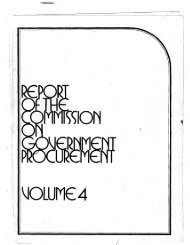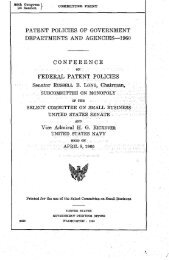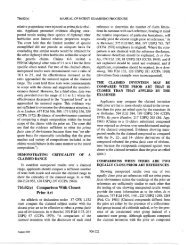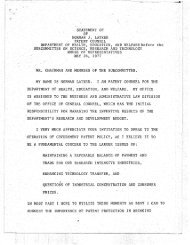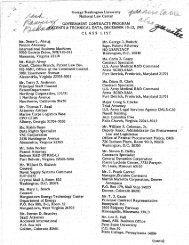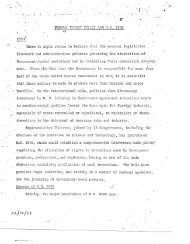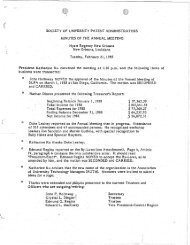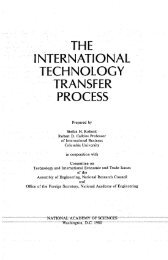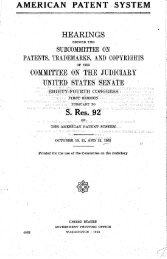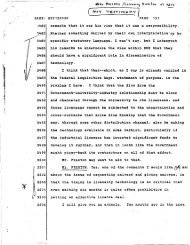~Iri,n - Bayhdolecentral
~Iri,n - Bayhdolecentral
~Iri,n - Bayhdolecentral
Create successful ePaper yourself
Turn your PDF publications into a flip-book with our unique Google optimized e-Paper software.
26 I Journal of theAssociation of University Technology Managers<br />
in guiding the patenting and licensing activities of their grantees. "30<br />
Congress is essentially being asked to clarify that patenting and exclusive<br />
licensing are not always the best way to proceed. Giving the funding agencies<br />
more leeway would likely result in not being able to license a teclmological<br />
advance and would be extremely deleterious to startup companies that<br />
require significant investments. To date, not surprisingly, the proposals have<br />
received scant political traction.<br />
Similarly, the American Bar Association, at the behest of its Public<br />
Contracts Section, has under consideration a proposal to amend the act to<br />
benefit traditional government contractors by expanding other-transactions<br />
authority to all agencies. To the extent that the government is willing to<br />
negotiate lesser government rights or contractor obligations regarding<br />
inventions, the ABA posits that the incentive for commercial companies to<br />
do business 'With the government will increase.<br />
After all is said and done, "existing technology transfer legislation<br />
works and should not be altered. "31<br />
Conclusion<br />
Arranged marriages between universities and corporations, under the stem<br />
eye of the federal government, are not ideal, Universities' fundamental goals<br />
are to teach students, develop new knowledge, and disseminate that knowl<br />
edge. Corporations' underlying missions are to produce profits and to build<br />
value for shareholders. The role of the federal government is to benefit the<br />
public and promote the general welfare of the people. The act requires a<br />
quid pro quo series of obligations from the various parties. Its underlying<br />
goal is that the parties mature into true partners in progress.<br />
The Bayh-Dole Act stimulates memories of two fine senators departed<br />
from public service but whose names shine brightly in innovations and<br />
discoveries. The memories of others in the Senate and House of<br />
Representatives who supported the act, and amendments thereto, should<br />
not be forgotten. Nor should the successive administrations-from Jimmy<br />
Carter to George W Bush-that have supported and sustained the act. An<br />
anniversary celebration should not forget the changing face of political<br />
representation, with new members of Congress elected every two years,<br />
changes in party leadership in the House and Senate, and the constant



